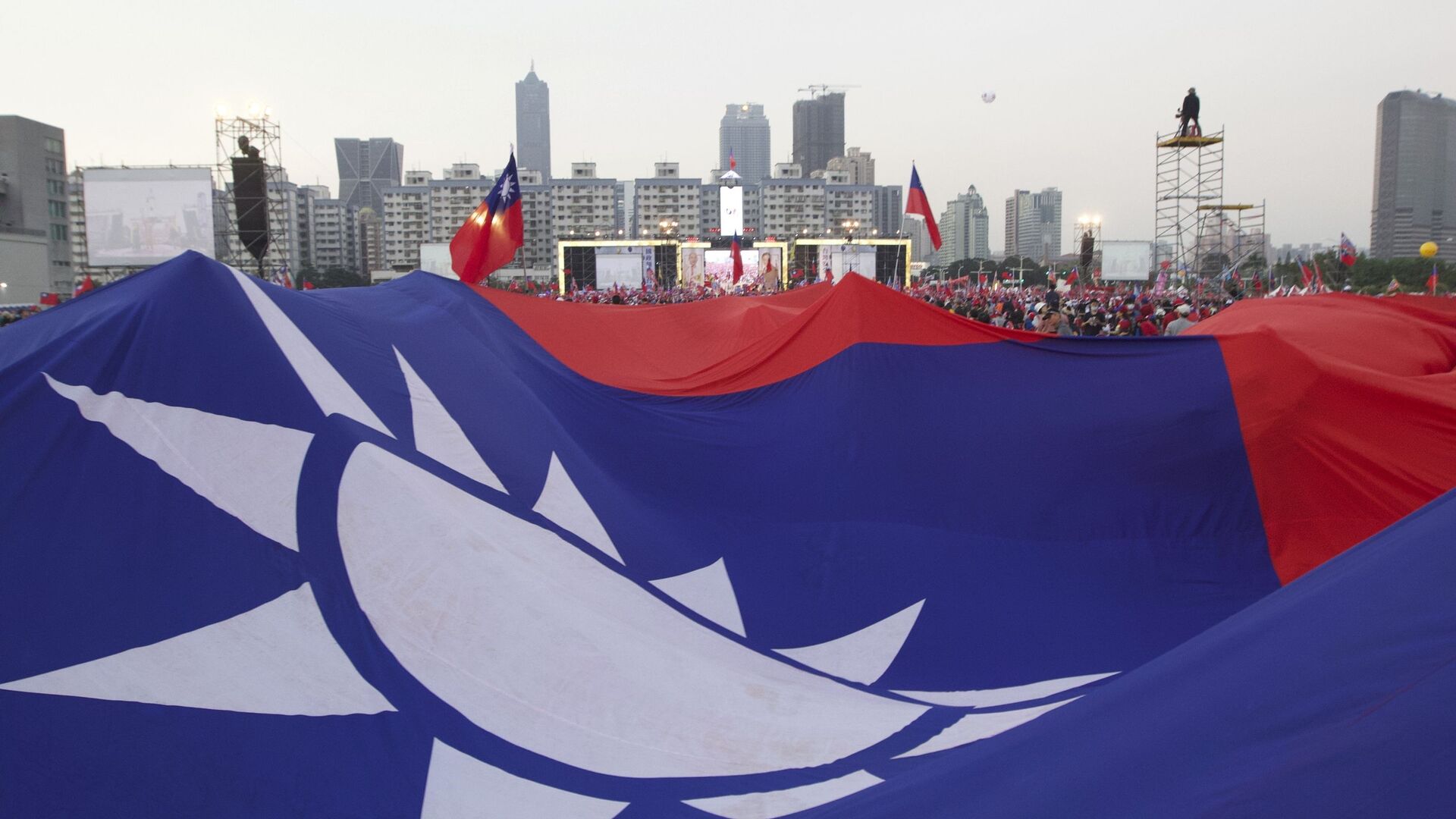Amid Cross-Strait Crisis, Taiwan’s Opposition KMT Sends ‘Fact-Finding Delegation’ to Mainland China
20:37 GMT 10.08.2022 (Updated: 12:44 GMT 19.06.2023)

© AP Photo / Ng Han Guan
Subscribe
With China engaged in wide-ranging military drills around Taiwan in response to a visit to the island earlier this month by US House Speaker Nancy Pelosi (D-CA), a group of Taiwanese politicians have traveled to the Chinese mainland to downplay the risk of serious conflict to the Taiwanese business community.
On Wednesday, Andrew Hsia, vice-chairman of the Chinese Nationalist Party, or Kuomintang (KMT), led a delegation across the Taiwan Strait to visit several mainland coastal cities where Taishang, or Taiwanese businessmen who work on the mainland, are concentrated, including in Xiamen and the Yangtze and Pearl river deltas.
“At this critical time, we need to show our concerns to our [compatriots] in mainland China and there is also a strong need for the two sides to have more communication channels,” Hsia said at Taiwan’s Taoyuan International Airport prior to leaving for China.
The party’s official Twitter account said on Tuesday that “the Kuomintang has always safeguarded the ROC, the safety and well-being of the Taiwanese people, and promoted peaceful, stable development of cross-strait relations and regional stability,” using the Taipei government’s official name, the Republic of China.
That is the very reason we send a fact-finding delegation on Aug. 10 to visit Taiwanese communities that study and live in Southern Mainland China. This apolitical trip aims at learning their views and providing assistance.
— 中國國民黨 KMT (@kuomintang) August 9, 2022
“That is the very reason we send a fact-finding delegation on Aug. 10 to visit Taiwanese communities that study and live in Southern Mainland China,” the KMT added. “This apolitical trip aims at learning their views and providing assistance.”
The delegation is not expected to visit Beijing or meet with any major Chinese official on the trip.
According to Taiwan's Central News Agency (CNA), President Tsai Ing-wen, who chairs Taiwan’s Democratic Progressive Party (DPP), said at a party meeting that the KMT trip was disappointing to Taiwan’s people and could send the wrong message to the outside world about the severity of the threat against the island posed by Beijing.
Hsia has cast Tsai’s government, in power since 2016, as abandoning the Taishang, who along with their families could number more than 3 million, according to unofficial estimates.
The RoC claims to be the legitimate Chinese government, despite losing the civil war and control over the mainland in 1949, when the rising communist forces established the People’s Republic of China (PRC) in Beijing. Since then, the vast majority of the globe’s nations have switched their recognition from Taipei to Beijing, including the US in 1979. Beijing regards Taiwan as a rebellious province destined to be reunited with the mainland, like the other colonial concessions taken from China by foreign powers. A new white paper issued on Wednesday outlined its latest approach to the issue.
While the KMT founded the RoC and continued to lead it even after it became isolated on Taiwan, today it sits in opposition to the Democratic Progressive Party (DPP), a group that favors independence from China. The KMT, by contrast, continues to see Taiwan as part of China and the RoC as the legitimate Chinese government, although some in the party favor reunification with the mainland.
Despite this opposition, trade has flourished between Taiwan and the mainland, which is a far larger trading partner for Taiwan than the United States, its primary political champion. According to CNBC, trade with the mainland accounted for 22% of Taiwan’s imports and 42% of its exports, although that number climbs to 70% in fields like microchips.
“The concentration of tech exports in cross-strait trade, Taiwan’s dominance in the foundry business and its prevalence in processing trade, suggests that any broad disruptions in cross-strait trade would be highly disruptive to global tech supply chains,” a group of Goldman Sachs economists wrote in a Wednesday note viewed by Bloomberg.
In retaliation for Pelosi’s visit, Beijing cut off some smaller trade items with Taiwan, such as fruits and other foodstuffs, that Taipei dismissed as of no major economic consequence. However, the message sent was clear: the mainland does not have to trade with Taiwan, but Taiwan has to trade with the mainland.



